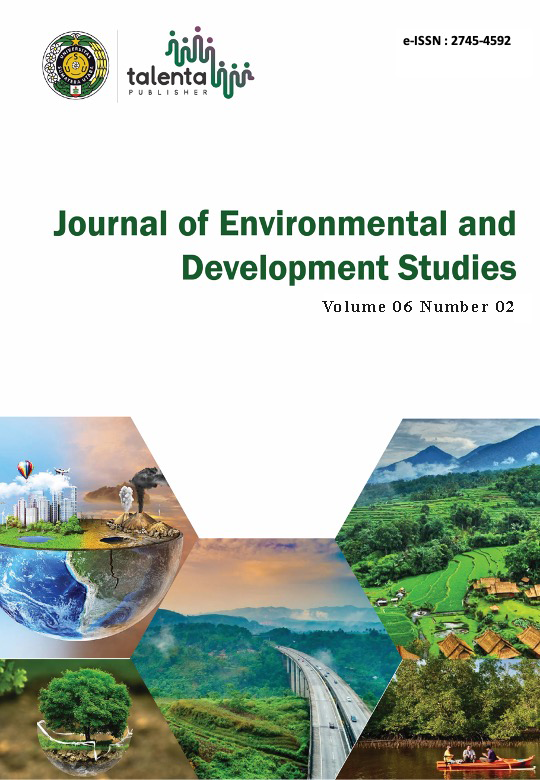Community Perception and Participation in the Initiation of the Tapanuli Orangutan Corridor (Pongo tapanuliensis Nater, 2017) in Hutaimbaru, Luat Lombang Village, Sipirok District, South Tapanuli Regency
DOI:
https://doi.org/10.32734/jeds.v6i2.17098Keywords:
Tapanuli orangutan, Community Perception, Community Participation, Conservation PlanningAbstract
The Tapanuli orangutan (Pongo tapanuliensis) is critically endangered and inhabits the Batangtoru Ecosystem, the last refuge of the southernmost orangutan population in Sumatra. Habitat fragmentation due to development from 1989 to 2013 left around 767 individuals in two wild populations, which are predicted to be unable to survive for the next 500 years. This research aims to analyze community perceptions and participation in the initiation of the Tapanuli Orangutan Corridor development in Hutaimbaru. The research method used was a quantitative approach with a sample of 30 respondents. The results showed that the community’s perception level of corridor development was in the moderate category with a percentage of 61%, while the level of community participation was in the high category with a percentage of 67%. This condition indicates that although community understanding of the corridor program is still limited, they respond positively and demonstrate active involvement. This research emphasizes the importance of a participatory approach through community-based agroforestry development as a corridor-building strategy, which not only benefits the conservation of the Tapanuli orangutan but also supports the improvement of local community welfare.

Downloads
Published
Issue
Section
License
Copyright (c) 2025 Journal of Environmental and Development Studies

This work is licensed under a Creative Commons Attribution-ShareAlike 4.0 International License.
















